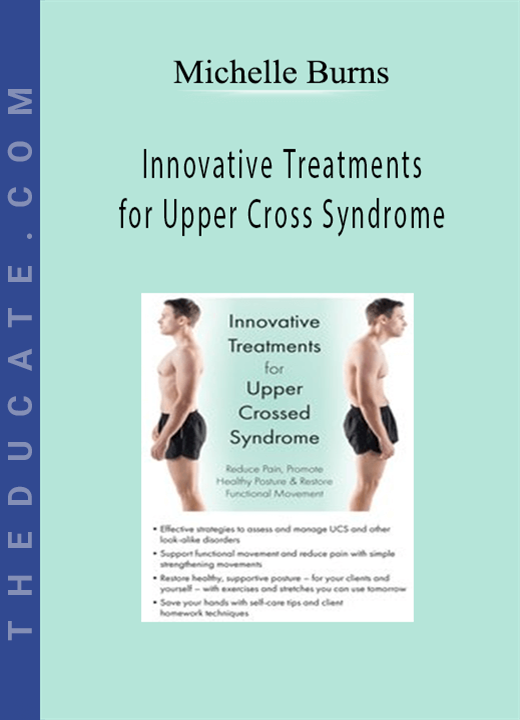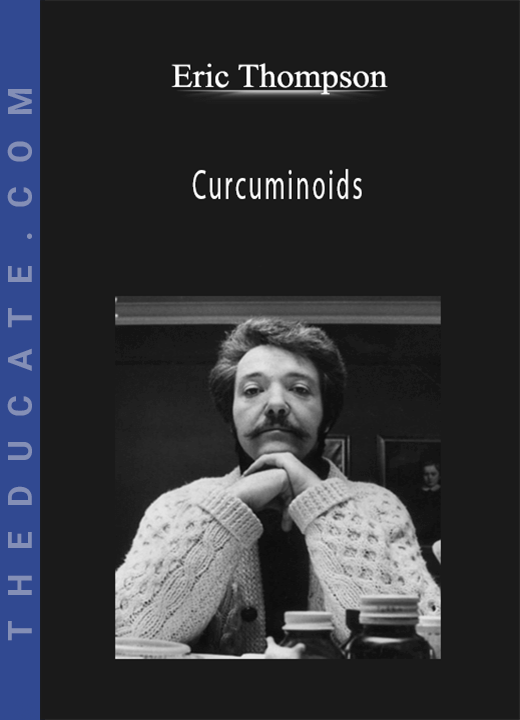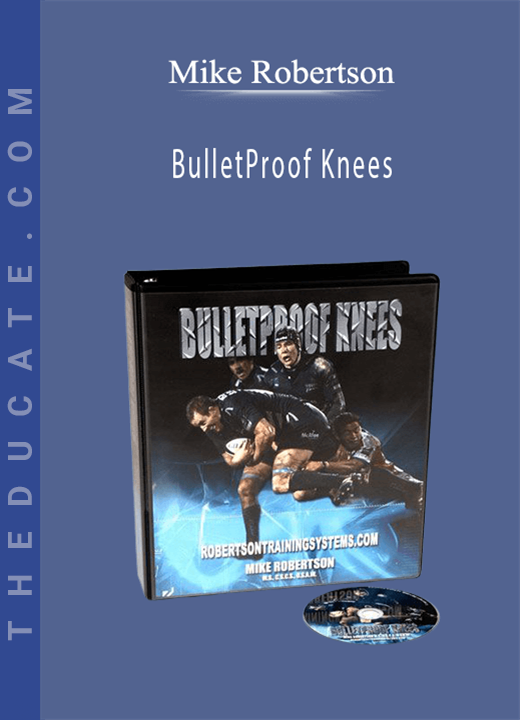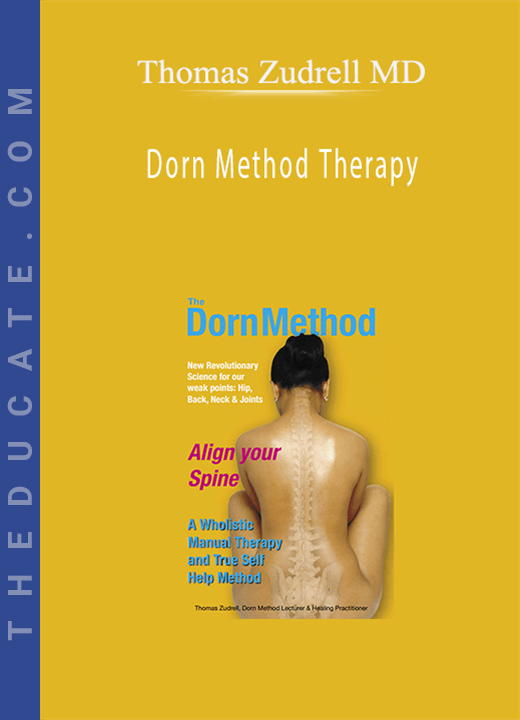Description
-

Michelle Burns – Innovative Treatments for Upper Cross Syndrome
- Faculty:
- Michelle Burns
- Duration:
- 5 Hours 46 Minutes
- Format:
- Audio and Video
- Copyright:
- Jun 07, 2019
Description
A client walks into your office with Upper Crossed Syndrome. He has a stooped posture, a bent-forward neck, and is complaining of neck pain, frequent headaches, lockjaw, and swallowing irregularities. You soon find the techniques you’ve been taught in school just don’t seem to relieve the pain or restore supportive posture.
Plus, the amount of time you spend with manual therapy makes your hands not as strong as they need to be for your next client. You wind up frustrated with minimal results and your client finally seeks another therapist to solve the pain puzzle.
Michelle Burns, a retired nurse and LMT for more than 20 years, specializes in postural distortions because she experienced UCS firsthand. With Michelle’s unique and comprehensive plan, you’ll be able to not only reduce that client’s pain in less time but save your hands in the process.
Get the satisfaction that you are restoring the client back to his regular activities for daily living (ADLs). Watch your confidence level rise to tackle UCS and other postural distortions when you encounter them with other clients.
Handouts
| Manual – Innovative Treatments for Upper Cross Syndrome (2.67 MB) | 66 Pages | Available after Purchase |
Outline
UPPER CROSS SYNDROME (UCS) AND TEXT NECK – ARE THEY THE SAME?
- How does UCS present as opposed to Text Neck?
- Imbalances in the upper extremity that can cause UCS and Text Neck
- Weakened and shortened muscles
- Physiology of postural or tonic muscles
- Physiology of phasic or type 2 muscles
- Joint involvement
- Nerve involvement
- 3 easy signs to know if someone has either UCS or Text Neck
- Additional symptoms
- Cautions and contra-indications to be aware of
HOW TO USE RECIPROCAL INHABITATION TO UNDUE PROGRESSIVE, POOR POSTURE
- 4 simple steps to relax and lengthen locked, short muscles
- 4 simple steps to unlock long muscles
HOW TO ASSESS VARIOUS SYMPTOMS AND RESTORE CLIENT’S MOVEMENT AND POSTURE
- Rotator cuff injury and shoulder pain
- Trigger Point referral pain
- Decentration of humeral head
- Muscle release
- Stretches
- Thoracic Outlet Syndrome
- Acromioclavicular impingement
- Trigger point referral pain
- Muscle release
- Strengthening movements
- Stretches
- “Sinus” headaches
- Occipital nerve impingement
- Trigger point referral pain
- Muscle release
- Stretches
- Difficulty swallowing and sore throat
- Deep cervical flexors
- Trigger point referral pain
- Strengthening movements
- Dowager’s hump
- Compressive forces at transition zones
- Strengthening movements
Hands-On Lab
- Demonstrate Protocol when faced with UCS
- Sherrington’s Law
- Hilton’s Law
- Locked short muscles
- Locked long muscles
- Prone
- Practice stretches and strengthening movements
IDENTIFY FUNCTIONAL TREATMENT GOALS
Faculty
Michelle Burns, BSRN, BSAlt Med., LMT, MTI, CEP, BCMT Related seminars and products: 1
Michelle Burns, BSRN, BSAlt Med., LMT, MTI, CEP, BCMT is a Licensed Massage Therapist and Massage Therapy Instructor with over 20 years of experience in massage as well as more than 20 years of experience as a Registered Nurse in surgical and intensive care. She is the founder and director of Advanced Holistic Healing Arts, a medical and clinical massage business that offers advanced training and continuing education for therapists. Ms. Burns believes in the benefits of both traditional medicine and complementary therapies, and works to incorporate both the science and art of techniques in her practice and classes.
While managing the intensive care unit, she implemented the use of massage to decrease the need for pain medication as well as maintain muscle strength and suppleness during long periods of patient immobilization Ms. Burns is an instructor of business and ethical practices, pathology, and specialty massage techniques at A New Beginning School of Massage in Austin, Texas and maintains professional practice when not traveling.
Speaker Disclosures:
Financial: Michelle Burns is the owner of Advance Holistic Healing Arts. She is a faculty member at A New Beginning School of Massage. Ms. Burns receives a speaking honorarium from PESI, Inc.
Non-financial: Michelle Burns is a member of the Texas Coalition of Massage Schools and Instructors.






8 reviews for Michelle Burns – Innovative Treatments for Upper Cross Syndrome: Reduce Pain, Promote Healthy Posture & Restore Functional Movement
There are no reviews yet.